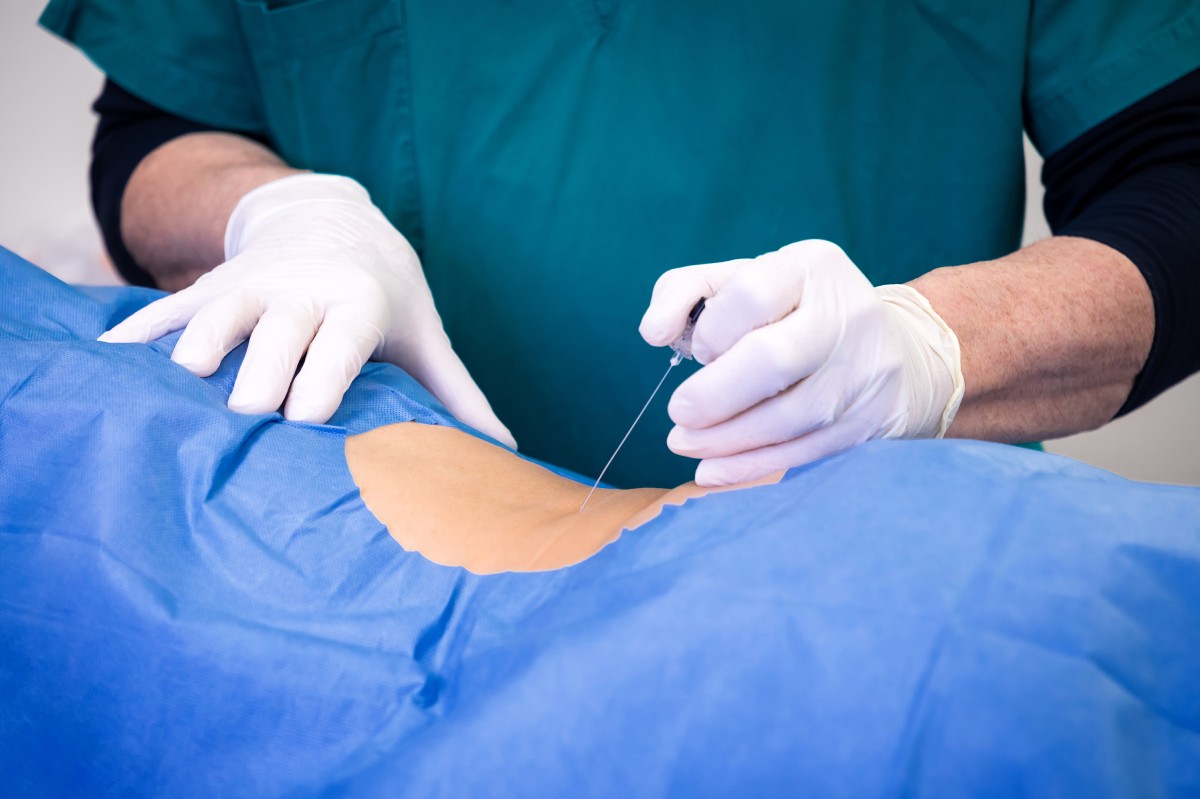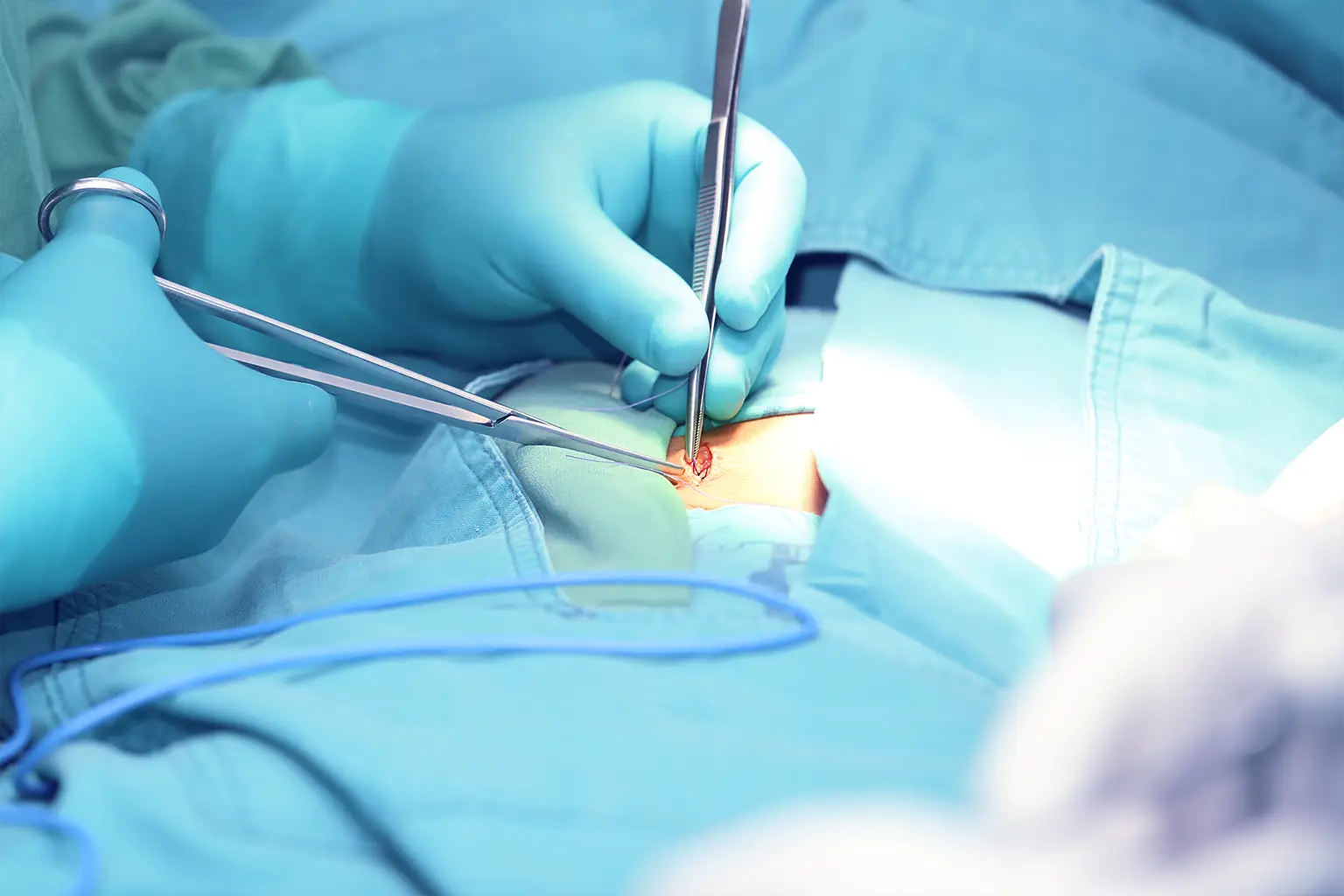Services
- Home
- Colorectal & Gastrointestinal Services
- Hernia Repair & Surgery In Singapore
Hernia Repair & Surgery in Singapore
A hernia is a visible bulge that protrudes through your body, often causing pain and discomfort. While some hernias may seem minor at first, they can become more serious over time and may require surgical intervention to prevent complications. If you’re searching for an established hernia specialist in Singapore or want clarity on your options for hernia surgery, we’re here to help.
Let’s explore your treatment options.
Get the Facts
Understanding Hernia in Singapore: Causes
What Is Hernia Singapore and Why Does It Occur?
In Singapore, hernias are common and affect men and women of various ages. They can appear in different parts of the body but are most often found in the abdomen or groin area.
Patients typically present with the following types of hernias:
The most common type, especially in men. It occurs in the groin when tissue pushes through the abdominal wall near the inguinal canal.
Common in infants and some adults, this type occurs near the belly button when abdominal contents protrude through the abdominal wall.
This type may develop at the site of a previous surgical incision where the muscle has not fully healed.
The primary cause of a hernia is increased pressure on a weakened area of muscle or tissue. This pressure may result from:
- Heavy lifting or straining
- Chronic coughing or sneezing
- Constipation and straining during bowel movements
- Pregnancy, which increases abdominal pressure
- Previous abdominal surgeries that weakened the muscle wall
- Natural ageing or congenital muscle weakness




When to See a Hernia Doctor in Singapore for Early Diagnosis
Signs You Should Consult a Hernia Doctor Singapore
Don’t wait until your symptoms worsen. You should consult a hernia doctor in Singapore if:
A bulge appears and increases in size over time
Discomfort begins to interfere with daily activities
Pain intensifies with movement and persists even at rest
You experience nausea, vomiting, or bowel changes
The hernia has recurred after prior repair
You're unsure whether the lump you're feeling is a hernia
A bulge appears and increases in size over time
Discomfort begins to interfere with daily activities
Pain intensifies with movement and persists even at rest
You experience nausea, vomiting, or bowel changes
The hernia has recurred after prior repair
You're unsure whether the lump you're feeling is a hernia
Importance of Early Consultation with a Hernia Doctor in Singapore
Seeing a hernia specialist in Singapore early allows for a timely diagnosis and treatment, which is key to preventing complications. Early consultation also means your treatment can be planned at a more manageable stage, improving surgical outcomes and enabling a smoother recovery process.

Diagnosis
Importance of Early Intervention
Early diagnosis helps prevent serious complications. Two of the most concerning risks include:
- Strangulation – when the blood supply to the herniated tissue is cut off, potentially leading to tissue death and requiring emergency surgery.
- Obstruction – when a portion of the intestine becomes trapped within the hernia, causing severe pain, nausea, and difficulty passing stool or gas.
Your hernia doctor will recommend an appropriate treatment, which may include monitoring, lifestyle changes, or planning for hernia repair.
Available Treatments
Hernia Repair Treatment Options in Singapore
The approach to hernia treatment in Singapore depends on the size, location, and severity of the hernia, as well as the patient’s overall health.
When hernia symptoms persist or complications arise, surgery is usually the most effective and lasting solution. Hernia repair is a common procedure performed by experienced hernia surgeons in Singapore.
The two main types of hernia surgery are:
- Open surgery: The surgeon makes an incision over the hernia site, pushes the protruding tissue back into place, and strengthens the abdominal wall with stitches or mesh. This method is effective for larger or more complex hernias.
- Laparoscopic hernia repair: A minimally invasive option involving small incisions and a camera-guided procedure to repair the hernia with mesh. It usually leads to faster recovery, less pain, and minimal scarring.
Hernias, if not repaired, will either stay the same or worsen with time. That’s why surgery is usually recommended by doctors. However, if you have some reason for delaying surgery and if your hernia is mild and not causing symptoms, your hernia specialist may recommend non-surgical management for a temporary period. It should be noted, though, that you would be required to monitor the hernia regularly for any signs of aggravation.
Conservative management options include:
- Lifestyle modifications: Avoid heavy lifting, maintain a healthy weight, manage chronic coughing or constipation, and strengthen the core muscles under medical supervision.
- Supportive devices: Special trusses or hernia belts may provide temporary relief by supporting the weakened area. However, these are not long-term solutions and do not treat the hernia itself.
Your hernia specialist will recommend the ideal method based on your condition.


Treatment
What to Expect During Hernia Surgery in Singapore
Here’s a general step-by-step overview of how hernia repair in Singapore is typically done:
The doctor will administer general or local anaesthesia with sedation.
- In open surgery, the surgeon makes a single incision to access and repair the hernia.
- In laparoscopic surgery, several small incisions are made, and the surgeon uses a camera and instruments to repair the hernia internally.
A surgical mesh is often used to reinforce the weakened muscle wall and reduce recurrence.
The surgeon closes the incision(s) with stitches or surgical glue, and moves you to recovery.
Most hernia surgeries are completed within 1–2 hours, and patients who had laparoscopic surgery usually return home on the same day. Recovery usually includes several days of rest followed by a gradual resumption of normal activities in the following weeks.
How to Prepare for Hernia Surgery in Singapore: A Step-by-Step Guide
Proper preparation helps ensure a smoother surgical experience and a faster recovery. Below is what patients should know before undergoing hernia surgery in Singapore.
Pre-Surgery Checklist for Hernia Surgery in Singapore
Use this checklist to get ready for your procedure:
Medical evaluation
Attend all pre-operative appointments and disclose your full medical history, including medications and allergies.
Fasting instructions
Do not eat or drink anything 6–8 hours before the surgery unless instructed otherwise.
Medications
Inform your hernia doctor if you’re on blood thinners or chronic medications. You may need to stop or adjust these before surgery.
Arrange transport
Make sure someone is available to accompany you to and from the hospital or surgical centre.
Prepare your home
Stock up on essentials and prepare a comfortable resting area at home for the first few days post-surgery.
Stop smoking
If applicable, stop smoking at least 2 weeks prior to surgery to support better healing.
Medical evaluation
Attend all pre-operative appointments and disclose your full medical history, including medications and allergies.
Fasting instructions
Do not eat or drink anything 6–8 hours before the surgery unless instructed otherwise.
Medications
Inform your hernia doctor if you’re on blood thinners or chronic medications. You may need to stop or adjust these before surgery.
Arrange transport
Make sure someone is available to accompany you to and from the hospital or surgical centre.
Prepare your home
Stock up on essentials and prepare a comfortable resting area at home for the first few days post-surgery.
Stop smoking
If applicable, stop smoking at least 2 weeks prior to surgery to support better healing.
Treatment
Understanding Risks Before Hernia Surgery
While hernia surgery is generally safe, it’s important to be aware of potential risks. These include:
- Infection at the surgical site
- Bleeding or blood clots
- Pain or discomfort in the recovery period
- Recurrence of the hernia over time
- Reaction to anesthesia
Your hernia specialist in Singapore will explain how they will manage these risks, ensuring you are informed and confident before proceeding.

Tips After Surgery
Post-Surgery Care and Follow-Up with Your Hernia Specialist in Singapore

Recovery Tips After Hernia Surgery
Take it easy during the first few days. Avoid lifting heavy objects or engaging in strenuous activities.
Keep the incision area clean and dry. Follow instructions on when and how to change dressings.
Take prescribed medications as directed to manage discomfort.
Gentle walking is encouraged to prevent blood clots and support circulation.
Start with a light, digestible diet and gradually resume your normal meals.
Most patients return to light activities within 1–2 weeks. Your hernia doctor will advise you based on the type of surgery you had and how your body is healing.
Importance of Follow-Up with Your Hernia Specialist
Follow-up appointments are essential to monitor your healing, address any concerns, and detect early signs of complications or recurrence. Your doctor will let you know when to return for review.
Why Choose Us for Hernia Repair?
We are committed to excellence in surgical care and patient recovery.
Highly Skilled
Surgeon
Expertise in minimally
invasive & open surgery
Advanced Surgical
Technology
Ensuring precision
and effective repairs
Patient-Centered
Care
Personalized treatment plans for optimal recovery
Comprehensive Aftercare Support
Dedicated post-surgery
follow-ups
Highly Skilled
Surgeon
Expertise in minimally
invasive & open surgery
Advanced Surgical Technology
Ensuring precision
and effective repairs
Patient-Centered
Care
Personalized treatment plans for optimal recovery
Comprehensive Aftercare Support
Dedicated post-surgery
follow-ups
Your health and comfort are our priority!

Post-Surgery Support
Recovery and Aftercare
What to Expect After Surgery:
- Rest & avoid heavy lifting for several weeks.
- Follow-up appointments to monitor healing and progress.
- Dietary & lifestyle adjustments to reduce strain and prevent recurrence.
Your dedicated care team will guide you through every step of your recovery.
Frequently Asked Questions
Hernias are caused by increased pressure on weakened areas of muscle or connective tissue due to activities like heavy lifting, chronic coughing, or pregnancy.
A hernia is often identified by a lump or bulge in the affected area, which may increase in size when standing, coughing, or straining.
Yes, hernia repair surgeries, especially minimally invasive techniques, are safe and effective with a low risk of complications.
No, hernias do not heal without surgery and may worsen over time, increasing the risk of complications.
Heavy lifting, obesity, or chronic coughing can strain abdominal muscles and increase hernia risk.
Supportive garments and lifestyle changes may relieve symptoms, but surgery is the only cure.
See a doctor if you notice a bulge, pain, or discomfort when moving, lifting, or coughing.
You'll undergo a physical exam and possibly imaging; your doctor will explain treatment options.
Not usually for private clinics, but public hospitals or insurers may require one.
Options include lifestyle changes, open surgery, or minimally invasive laparoscopic repair.
It offers fast recovery and minimal scarring, with success rates comparable to open surgery.
Inguinal, umbilical, incisional, and recurrent hernia repairs—open or laparoscopic—are most common.
Specialists provide diagnosis, surgical options, and tailored long-term care.
Yes, they treat both routine and complicated hernias, including recurrences and strangulations.
Yes, most surgeries are Medisave-claimable and may be covered by private insurance plans.
Yes, recurrent hernias can be repaired with specialised techniques by experienced surgeons.
Our Insurance Partners



Take the First Step Toward Relief!
Relieve Discomfort and Prevent Hernia Complications Today!